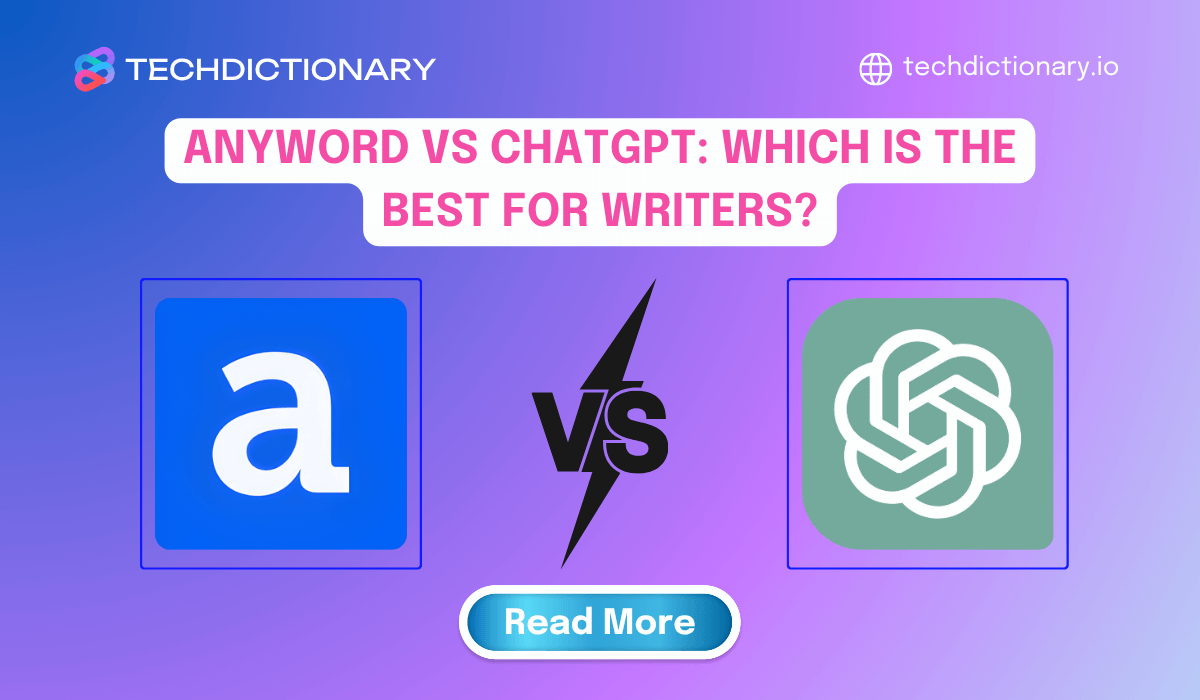
As a team of content creators, we’re in a constant balance: the creative spark and the looming deadline. The Anyword vs ChatGPT debate isn’t just a review for us; it’s our daily reality.
We’ve tested both extensively. The truth is, they aren’t the same.
Putting them head-to-head, we realized one is like a specialist, laser-focused on one thing: conversions. The other is a brilliant all-rounder, able to handle 99 different problems you throw at it.
We spent weeks testing both tools to their limits. We’re here to share our real-world findings—the data, the experience, and the truth—to help you avoid wasting time and money.
We know you’re busy, so here’s a quick summary from our team.
Quick Answer: Anyword wins for performance-driven marketing copy. Its key strength is using A/B-tested data to “Close the Feedback Loop. ChatGPT wins for everything else. Its versatility, multimodal power, and fantastic free tier make it the ultimate all-purpose tool.
Key Differences:
Winner by Use Case:
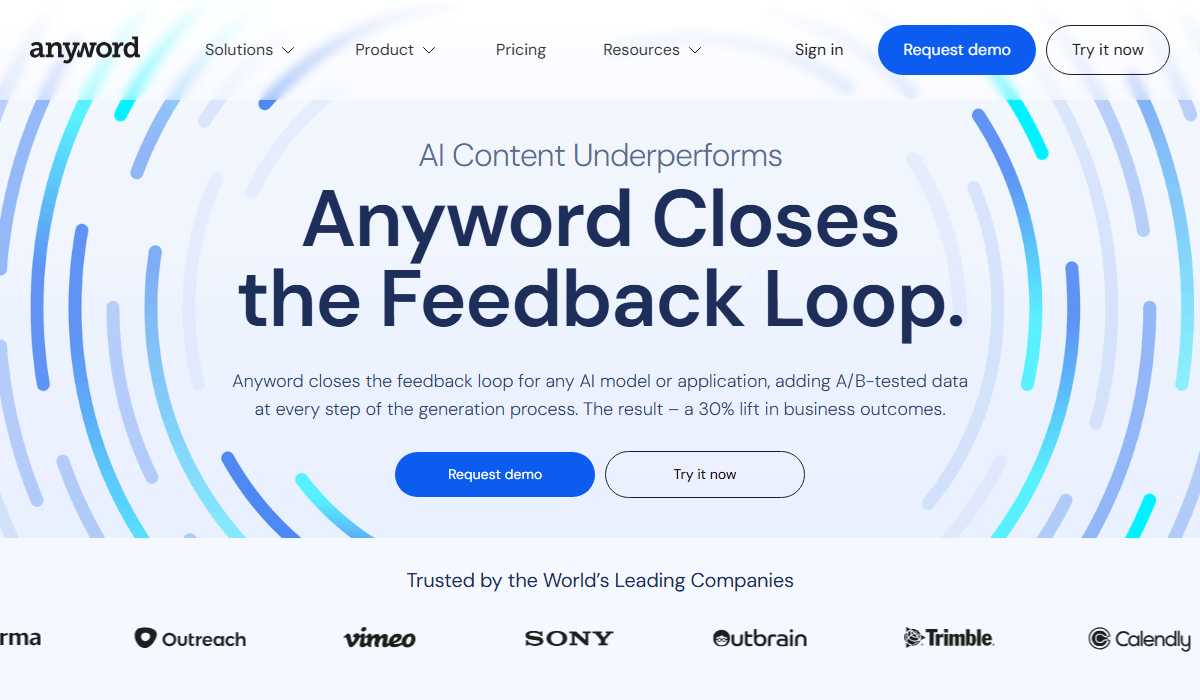
Anyword uses A/B-tested data to improve marketing results
Anyword is a specialized AI writing platform designed to solve the problem that “AI Content Underperforms.” Its mission is to “Close the Feedback Loop” by integrating A/B-tested data into the creation process. This helps marketers optimize copy from the start, aiming for a “30% lift in business outcomes.” We see it as a powerful writing and performance optimization tool.
You may be interested in: Anyword vs Writesonic: Which is the best for Writers in 2025?
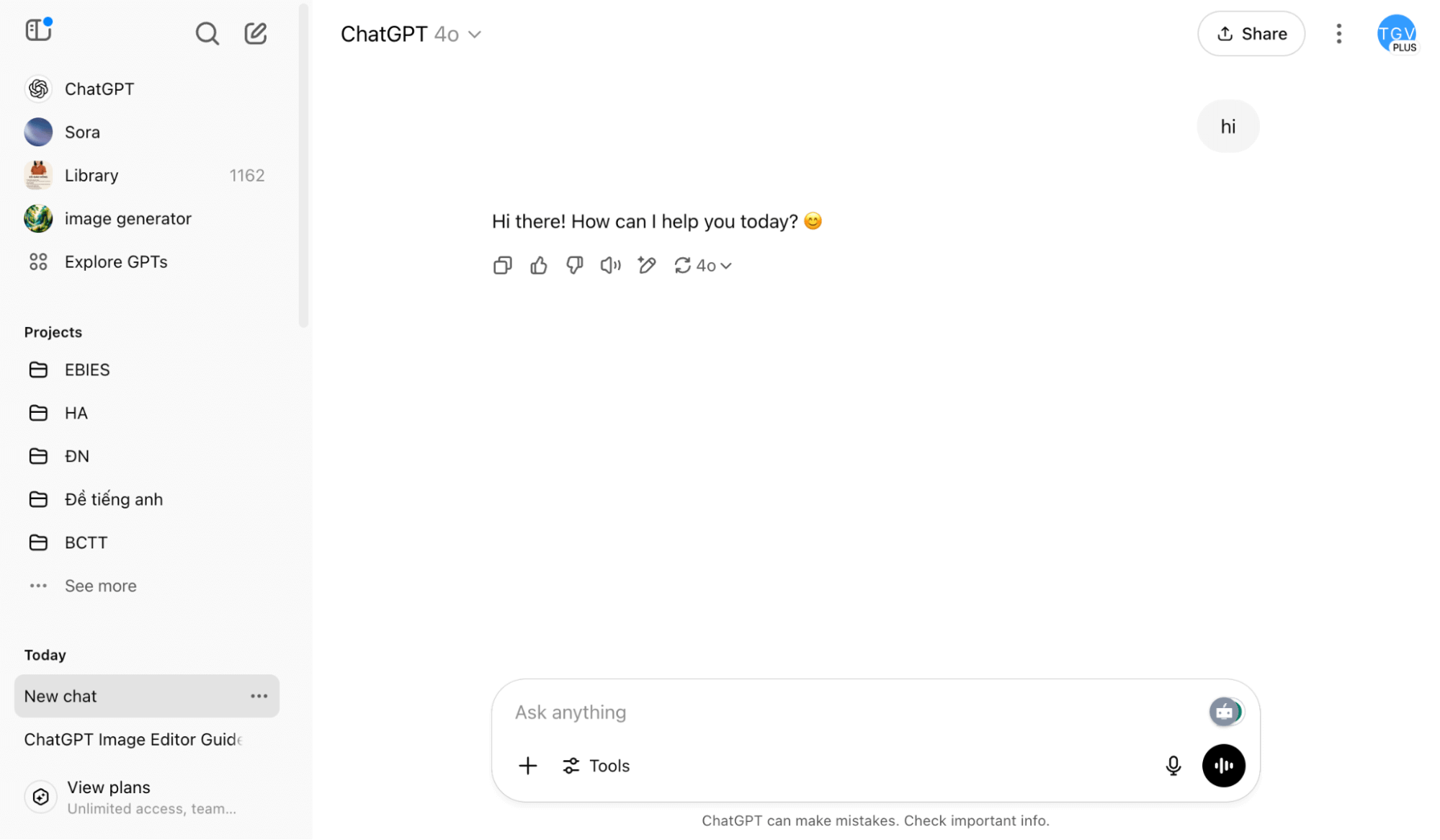
ChatGPT is a creative and multimodal AI partner
ChatGPT is OpenAI’s famous conversational AI assistant. For our team, it’s the ultimate creative partner. Powered by the latest GPT-5 models, it has a massive user base of 800 million weekly active users. It’s a multimodal tool that handles text, voice, images, and data, offering both powerful free and premium tiers for all types of users.
You may be interested in: ProWritingAid vs ChatGPT: Which is the best for Writers in 2025?
Okay, let’s get into the details. This is where we saw the real-world differences that impact a writer’s workflow. When we compared them, it was clear they were built for different jobs. Here’s a quick summary of who won each round in our test.
|
Feature |
Anyword | ChatGPT |
Winner |
| Content Creation | Marketing templates, 10x speed | Versatile, multimodal | ChatGPT |
| Accuracy & Factuality | Performance-focused (A/B data) | Factual-focused (needs checking) | Tie |
| Brand Voice | Centralized team library | Single “Custom Instruction” | Anyword |
| SEO Optimization | Built-in tools with scoring | Generic guidance only | Anyword |
| User Experience | Dashboard, moderate learning curve | Conversational, intuitive | ChatGPT |
| Integrations | Deep marketing workflows | Broad API for custom builds | Tie |
Our ad copywriter was 100% team Anyword. And for her job, she’s right. She showed us how its 100+ templates let her crank out ad variations 30-40% faster than trying to get the prompt just right in ChatGPT.
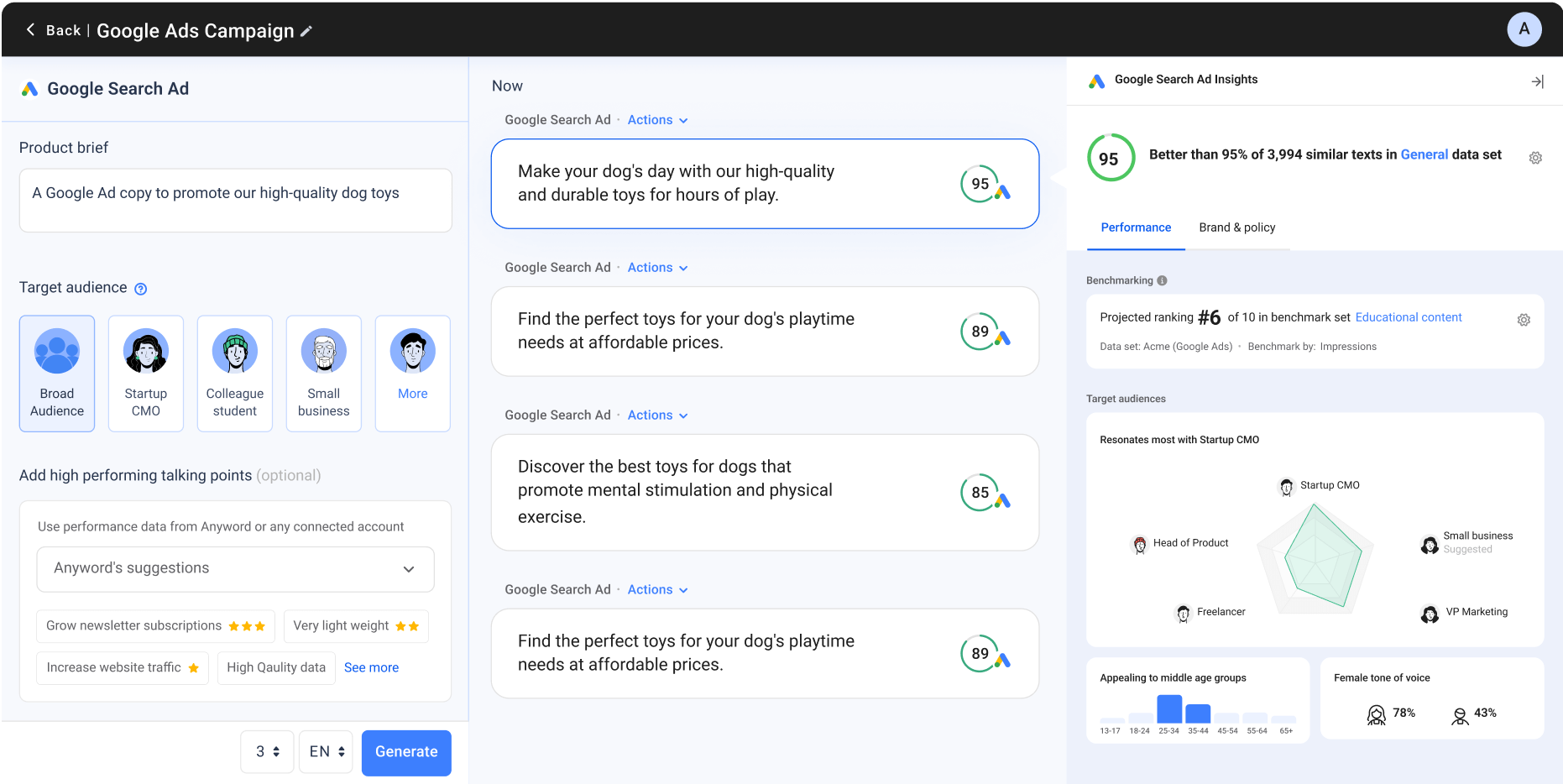
Anyword helps marketers create ads 30–40% faster
But then, our long-form writer jumped in. He said, “That’s great, but it can’t write my 5,000-word pillar pages.” He needs ChatGPT’s massive 400,000-token context window to keep the story straight through a huge document. He even uses its multimodal feature, like dropping in a screenshot and having it write a “How-To” section.
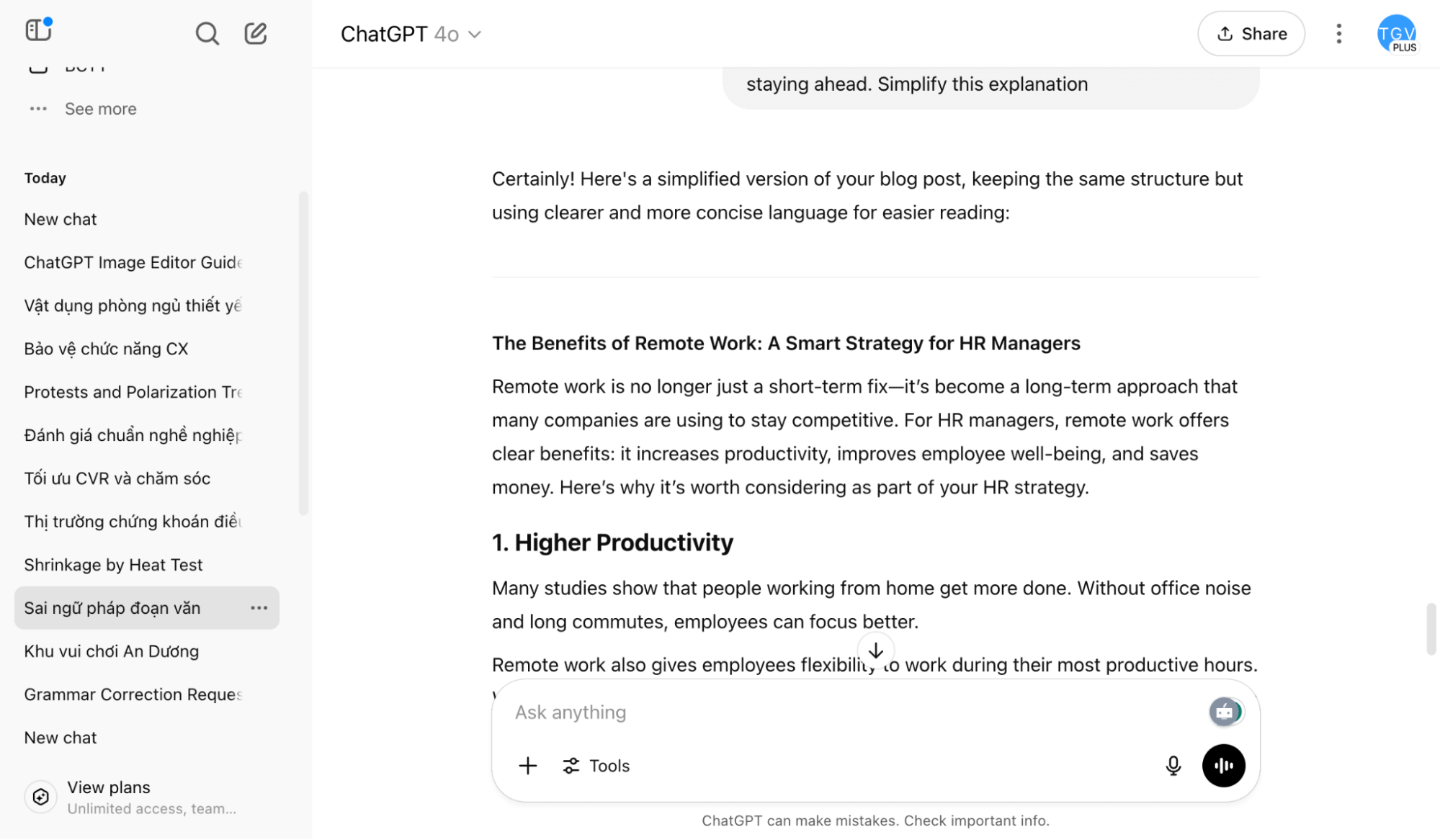
ChatGPT excels in long-form writing with multimodal support
We realized they were both right. Anyword is a specialist in copywriting speed. But ChatGPT wins the “Content Creation” category because its writing range—from huge articles to writing about images—is just so much bigger.
Winner: ChatGPT
For this category, “accurate” means two totally different things.
With Anyword, accuracy is all about performance. Its goal is to use A/B-tested data to generate copy that is already proven to work. For our marketing work, that data-driven approach builds a lot of trust.
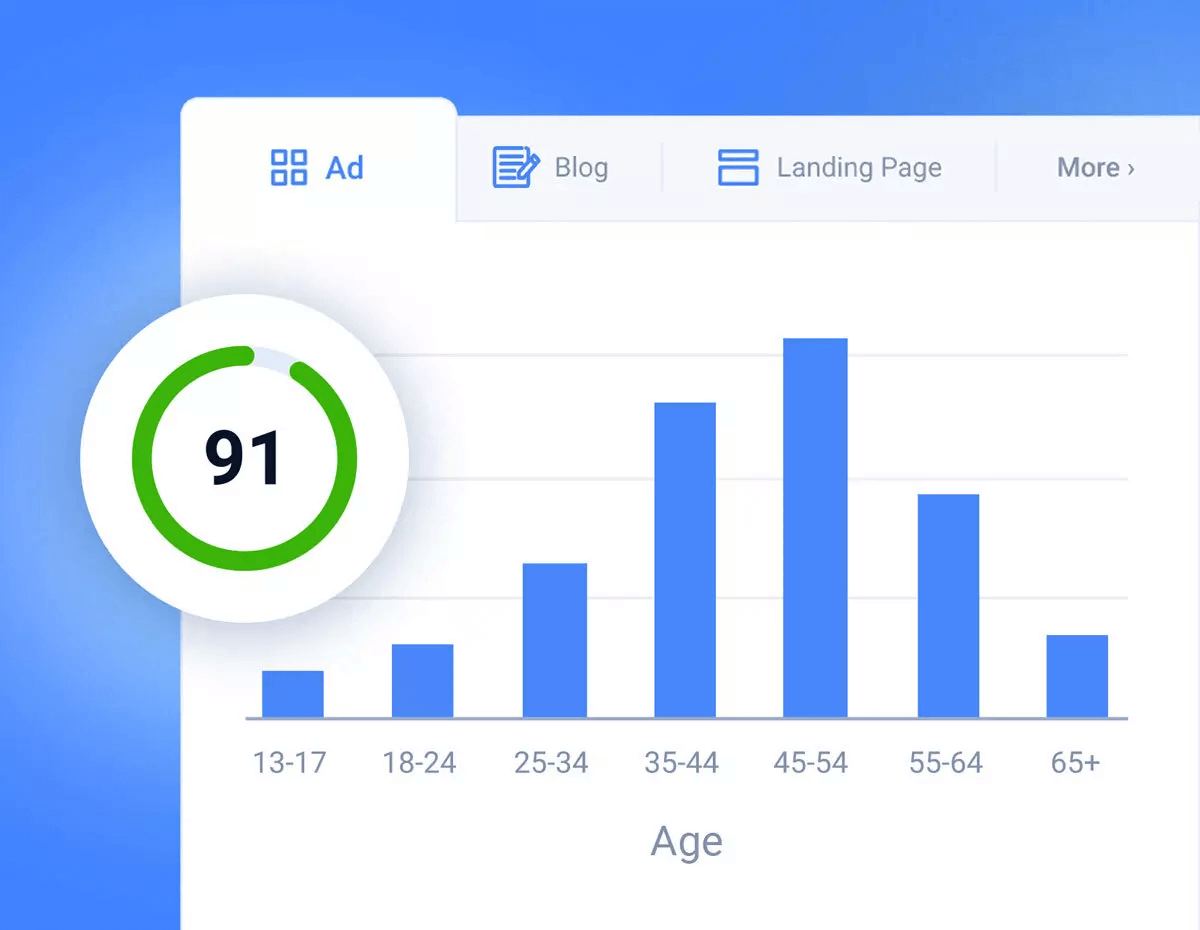
Anyword’s data-driven accuracy ensures proven marketing results
With ChatGPT, we’re talking about facts. That 37.1% “hallucination” rate (from the SimpleQA test) sounds scary, but it’s our team’s real-world experience that matters. We once got burned when a writer (who was in a hurry) copied a “fact” from ChatGPT that was totally made up. It was embarrassing.
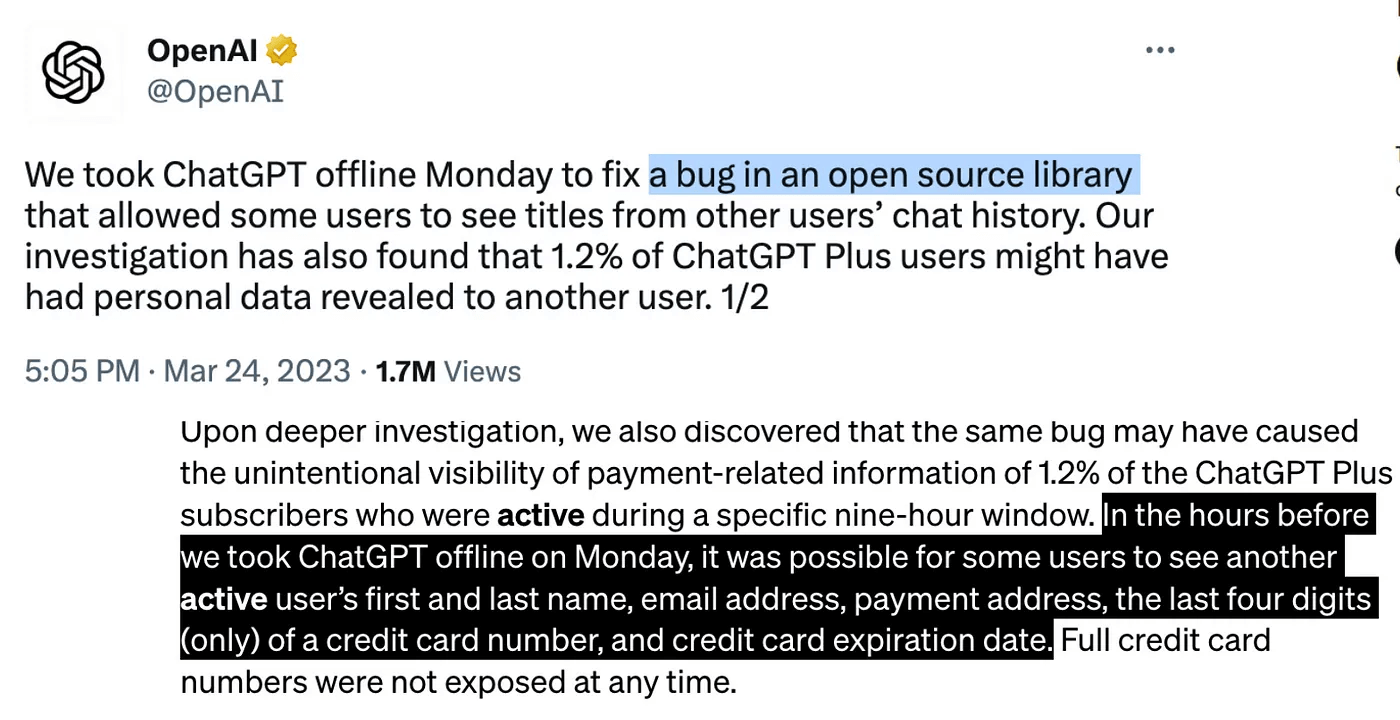
ChatGPT may produce factual errors requiring verification (Source: John Snow Labs)
So, we have a firm rule now: always fact-check ChatGPT. It’s a “smart draft,” not a final copy. We trust Anyword’s marketing output. We treat ChatGPT’s factual output as a draft that needs to be checked.
Winner: Tie
This was an interesting showdown. We initially thought Anyword was the easy winner, but ChatGPT does have “Custom Instructions”, so we put it to the test.
Here’s our experience: With ChatGPT, we set up “Custom Instructions” for one of our main clients—plugging in their info and their specific tone of voice. And it worked… pretty well! The responses felt much more on-brand.
The problem started 10 minutes later when we had to switch to a second client with a totally different brand voice.
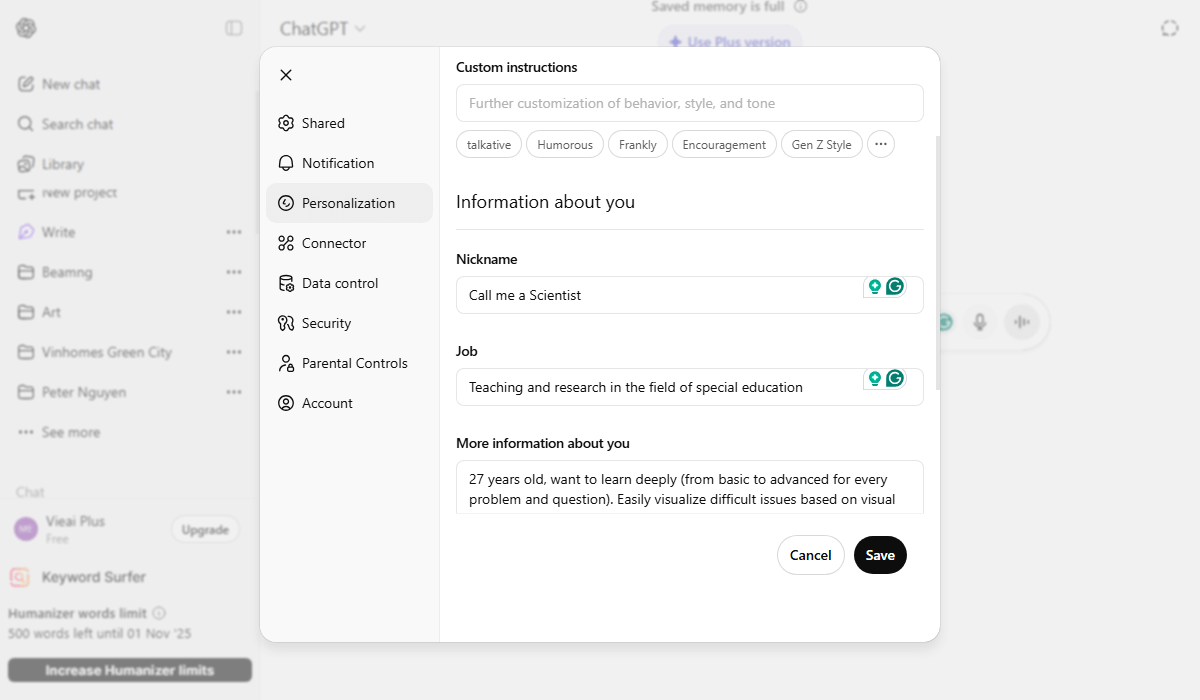
ChatGPT’s Custom Instructions work but lack flexibility
We had to go back to settings, delete the old instructions, and paste in the new ones. It’s… clumsy. That feature is clearly designed for an individual to personalize their own AI, not for an agency to manage 10 different client voices for 10 clients.
This is exactly where Anyword shines. As we saw on their site, it’s not a single “general instruction” field; it’s a “Brand Voice library.” We create separate profiles: “Client A Voice,” “Client B Voice,” and “Our Blog Voice.” When we write, we just pick the right one from a dropdown menu.
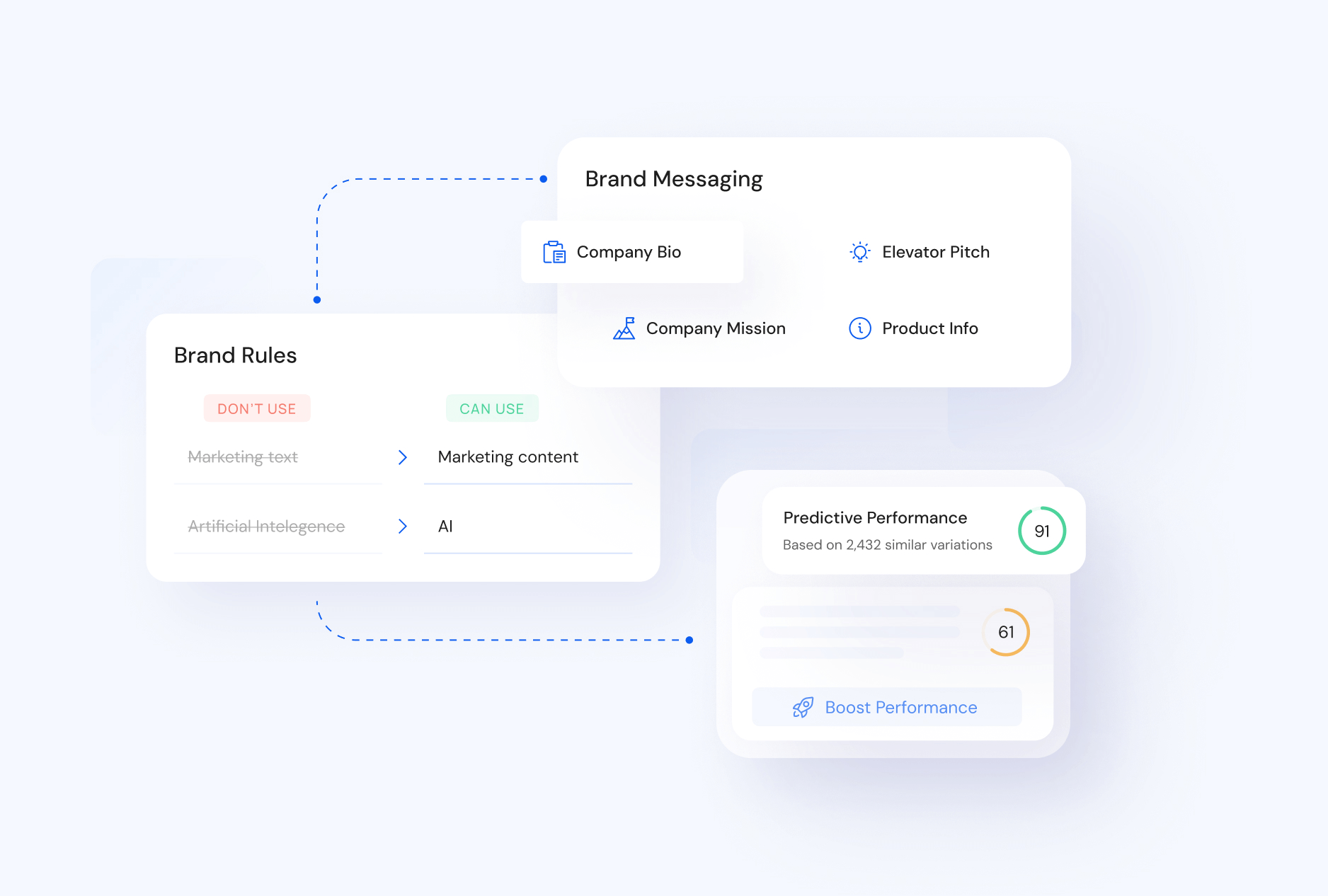
Anyword’s Brand Voice library enables easy multi-client management
For a freelancer working with just 1-2 brands, ChatGPT’s “Custom Instructions” is probably enough. But for a team or agency where brand consistency and constant project switching are the norm, Anyword’s system is the clear winner. It’s built for our workflow.
Winner: Anyword
You may be interested in:
Anyword vs Copy.ai: Which is the best for Writers in 2025?
Anyword vs Jasper: Which is the best for Writers in 2025?
When it comes to SEO, the two tools feel completely different to use.
Using ChatGPT for SEO is… a lot of guesswork. We have to be the experts. We have to tell it, “Write this, and please try to add this keyword X times.” But it doesn’t really know SEO. It’s just following a command. If you’re not an SEO pro yourself, you’re just hoping it’s writing a well-optimized article. It doesn’t guide you.
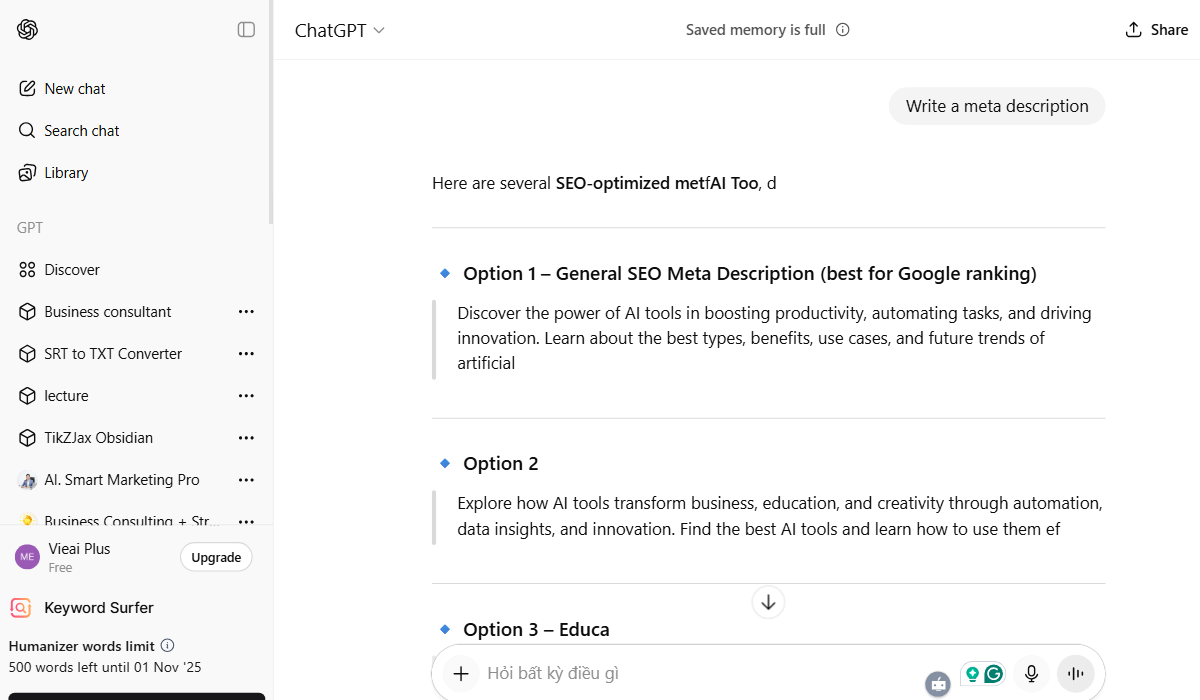
ChatGPT lacks built-in SEO guidance and optimization
But when we tried Anyword’s “Blog Wizard,” it was the total opposite. It felt like having a smart helper right there with us.
As we were writing, a live score was right on the screen—its SEO Performance Score (0-100). It gave us simple, real-time tips like, “Your keyword density is a bit low,” or “Your readability score is good.” It even helps with meta descriptions and headings.
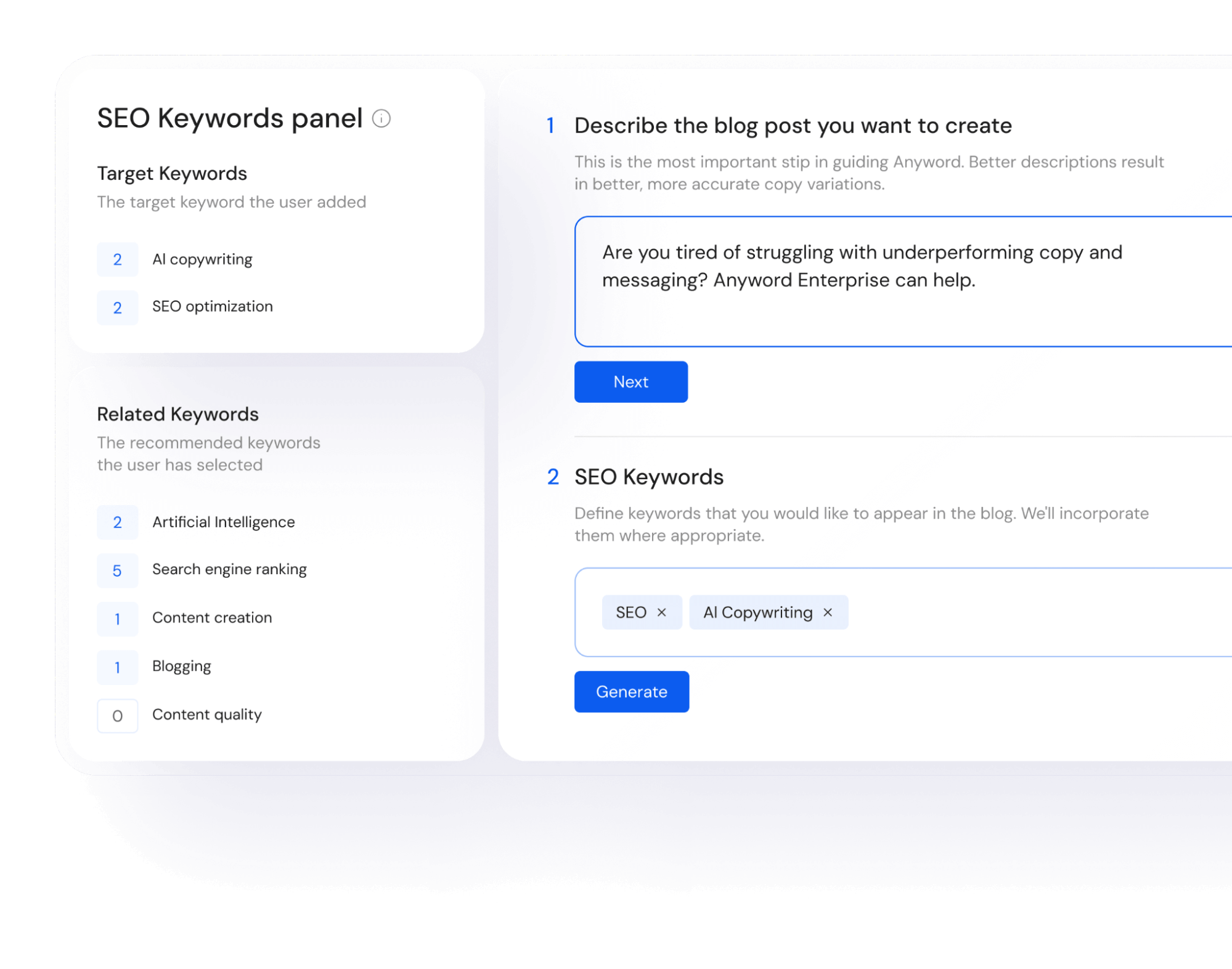
Anyword’s Blog Wizard offers real-time SEO scoring and tips (Source: Anyword)
Here’s the bottom line: ChatGPT makes you do all the SEO thinking. Anyword helps you with the SEO thinking as you write. For our team, this saves a ton of time and stress. Anyword is the clear winner.
Winner: Anyword
ChatGPT is a tool you can use immediately. Our newest team members got a useful output in just 1-2 minutes. The chat interface is intuitive, and it has native iOS and Android mobile apps. Anyword is a professional dashboard. It took us 5-10 minutes to learn the layout and a good 2-3 weeks to truly master its performance metrics. It’s powerful, but it’s a desktop-only experience with no mobile app. For fast adoption and pure ease of use, ChatGPT wins easily.
Winner: ChatGPT
This is a category where both tools are very strong, but in completely different ways.
ChatGPT is like a versatile “Lego set.” Its strength lies in its API. For teams with developers, it can be integrated into anything—from custom Slack bots to internal tools. It’s built for unlimited custom flexibility.
At first, we thought Anyword was limited. But we were wrong.
Anyword doesn’t focus on infinite customization, but on deep, strategic integrations with the tools marketing teams use every day. As we saw, it connects directly with Salesforce, Wrike, and LinkedIn Pages. These aren’t simple connections; they are designed for workflow—like “Data Import” and “Content Export.” It even has a “Co-Pilot” for ChatGPT itself, designed to supplement, not just to compete.
They don’t have the same goal: ChatGPT wins on breadth (an API for everything). Anyword wins on depth (workflow-ready integrations).
Winner: Tie
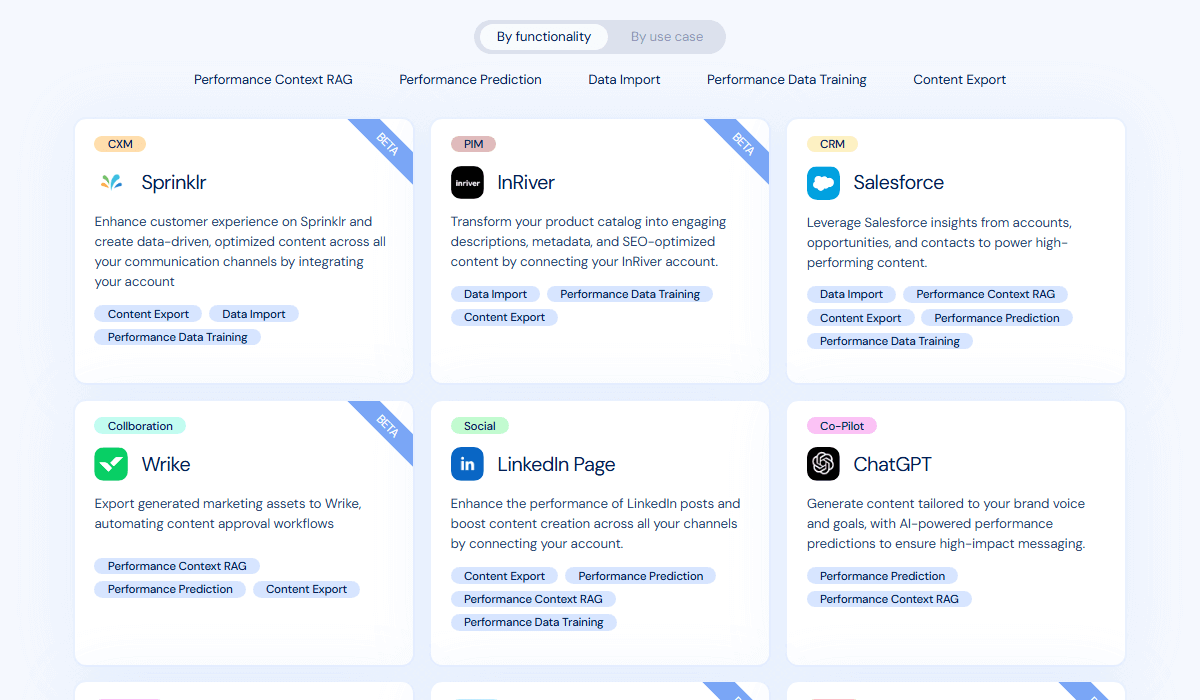
Anyword integrates with key marketing tools for smart workflows
You may be interested in:
Copy AI vs ChatGPT (2025): Which is the best AI Writing Tool?
GravityWrite vs ChatGPT (2025): Which is the best AI Writing Tool?
Here’s our “no-fluff” breakdown. We’ve laid out the key data points side-by-side. Pay close attention to the “Cons”—that’s usually where we find our deciding factor.
| Anyword | ChatGPT | |
| Pros | ✅ Aims for 30% conversion lift (A/B data) ✅ Centralized brand voice library for teams ✅ Built-in SEO tools with real-time scoring ✅ Enterprise compliance (SOC 2, HIPAA) |
✅ Multimodal (text, image, voice, code) ✅ Powerful free tier available ✅ Massive context window (up to 400K tokens) ✅ Extensive integrations and API ecosystem ✅ Intuitive interface (1-2 min to start) |
| Cons | ❌ Limited to marketing content (text only) ❌ No multimodal capabilities ❌ Steeper learning curve (2-3 weeks) ❌ Limited predictions on lower tiers (e.g., 50 on Starter) |
❌ No performance prediction for copy ❌ Non-flexible brand voice ❌ No built-in SEO optimization tools ❌ Significant risk of “hallucinations” (requires 100% fact-checking) ❌ No plagiarism detection built-in |
Okay, let’s talk about the price. It’s always a big deal.
We looked past the sticker price to find the real value… and the hidden catches. For our agency, the way they handled free trials and team plans told us everything we needed to know.
| Aspect | Anyword | ChatGPT |
| Free Tier | ❌ No (7-day free trial only) | ✅ Yes (Permanent free tier) |
| Credit Card for Trial | Not required | Not required for the free plan |
| Paid Entry Price | $49/month (Starter) | $20/month (Plus) |
| Team Plans | $99/month (Data-Driven, 3 seats) | $25/user/month (Business) |
| Refund Policy | Check terms (often 14-30 days) | No refunds for subscription months |
| HIPAA Compliance | Yes (On Enterprise plan only) | Yes (On Business & Enterprise) |
| Key Limit | Performance Predictions | Message Caps (tier-dependent) |
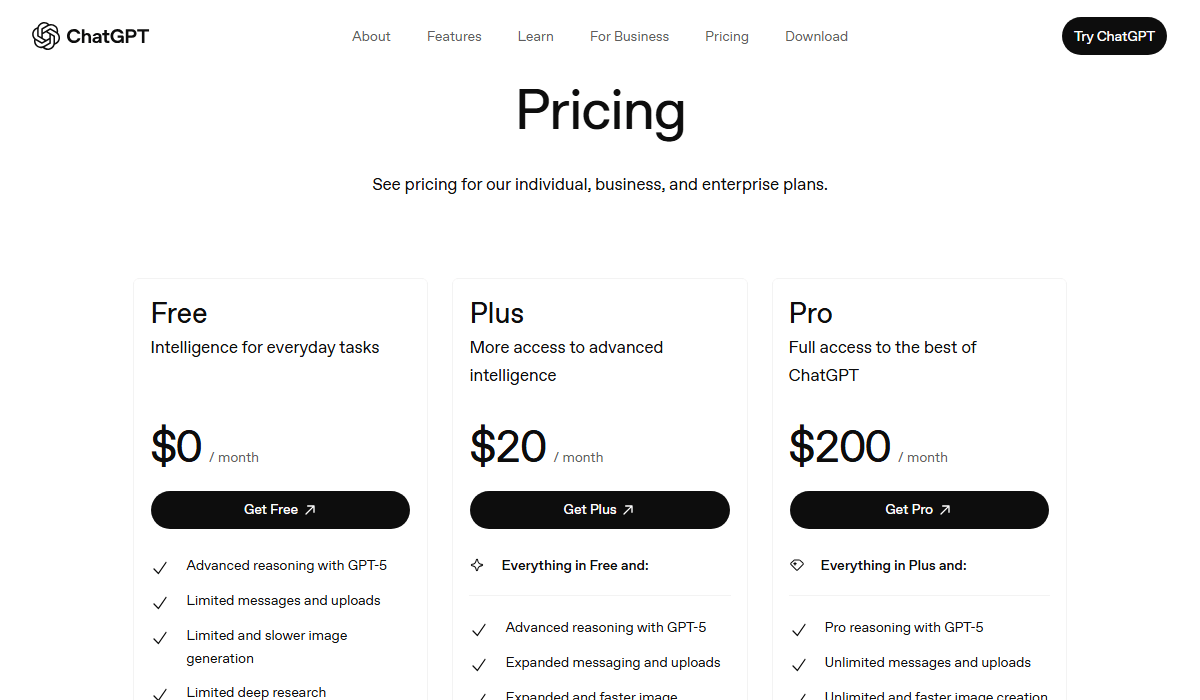
ChatGPT Pricing Plan
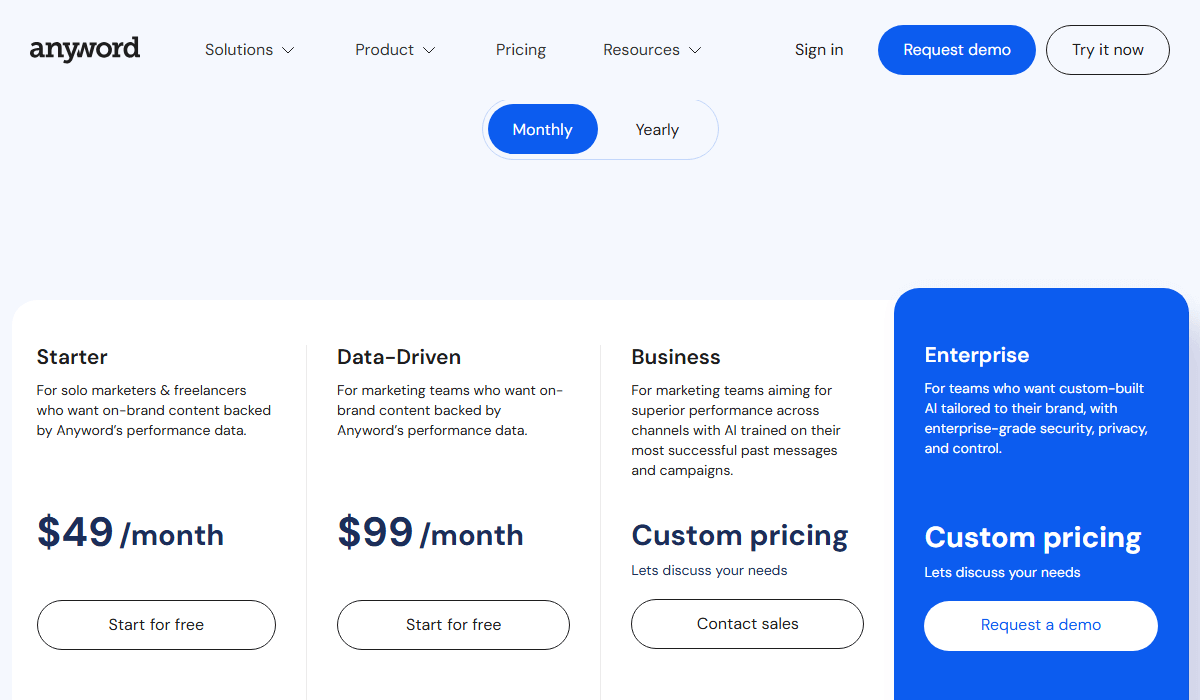
Anyword Pricing Plan
Before you pull out your credit card, our team recommends you answer these questions first. The “best” tool is just the one that fits your specific workflow.
You may be interested in:
Wordtune vs ChatGPT (2025): Which is the best AI Writing Assistant?
Jasper AI vs ChatGPT (2025): Which is the best AI Writing Tool?
Here is our final advice, based on our direct experience.
Choose Anyword if you’re:
Choose ChatGPT if you’re:
Our Pro-Tip: Use Both.
We use ChatGPT for the first 80% (brainstorming, research, drafting). Then, we bring the final marketing copy into Anyword for the last 20% of optimization to get its performance score. This enables us to achieve both creative speed and data-driven results.
You may be interested in:
Writesonic vs ChatGPT: Which is the best AI Writing Tool?
RightBlogger vs ChatGPT: Which Is Better for SEO Blogging in 2025?
Anyword vs Outranking: Which is the best for Writers in 2025?

